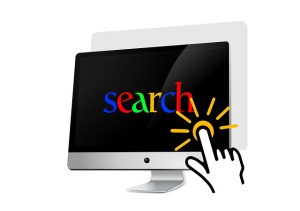The Power of Online Marketing

Online, or digital marketing, is an umbrella term for the marketing of products or services using digital technologies. It includes any effort to spread the word about a company that uses the internet as an advertising medium.
Over the last two decades, online marketing has become an absolute necessity for every business that wants to reach its target consumers. No longer can a company put an ad in the Sunday newspaper and assume that everyone will read it and then go out and buy its product. In fact, these days, if your business does not have an online presence, it might as well be invisible.
Indeed, online marketing has become so pervasive that is has resulted in a paradigm shift in the customer/advertiser relationship – people are now in control of their marketing experience and businesses must use various internet platforms in order to adapt to the changing expectations of consumers who are wanting ever-more sophisticated offerings throughout the purchasing journey.
But even though the balance of power has shifted in favor of the consumer, businesses should not be unmindful of the many advantages that online marketing offers. For example, the use of digital marketing allows brands to market their products and services 24 hours a day, seven days a week, every day of the year. It also allows them to offer customer support all the time, and not just during “normal” business hours. In addition, the use of social media platforms allows brands to receive both positive and negative feedback from their customers, which helps them decide quickly which products are popular and which may need to be put out to pasture.
Another advantage is that digital marketing is easy to be measured, allowing businesses to know the reach that their marketing is making, whether it is working or not, and the amount of activity and conversation that is involved. The results of traditional broadcast marketing simply cannot be measured nearly as accurately.
In addition, there are many powerful arrows in the online marketing quiver – any of which may prove to be the one that hits a potential consumer where he or she lives. They include:
• Search Engine Optimization (SEO) – a methodology of strategies, techniques, and tactics used to increase the amount of visitors to a website by obtaining a high-ranking placement in the search results page of a search engine such as Google, Bing, or Yahoo
• Search Engine Marketing (SEM) – a paid version of SEO where marketers pay for display ads in order to drive traffic to a company’s web pages
• Content Marketing – the creation of valuable media and content made available to potential customers who are searching for information about a particular product or service. It may include articles, blogs, videos, etc.
• Social Media Marketing – using one or several social media channels such as Facebook, Twitter, Instagram, etc., to engage with customers and build relationships
• Pay Per Click Advertising (PPC) – paid ads on search engines and social media sites
• Affiliate Marketing – a type of referral marketing where companies promote each other’s products
• E-mail Marketing – contacting customers who have given permission to reach them via their email accounts
Most businesses, these days, engage in omni-channel marketing, which employs a mixture of these strategies in a synergistic way, in order to maximize their effectiveness. And it’s a wise advertiser who learns to harness and master the power of online marketing.
 1-844-47-Click (1-844-472-5425)
1-844-47-Click (1-844-472-5425)



